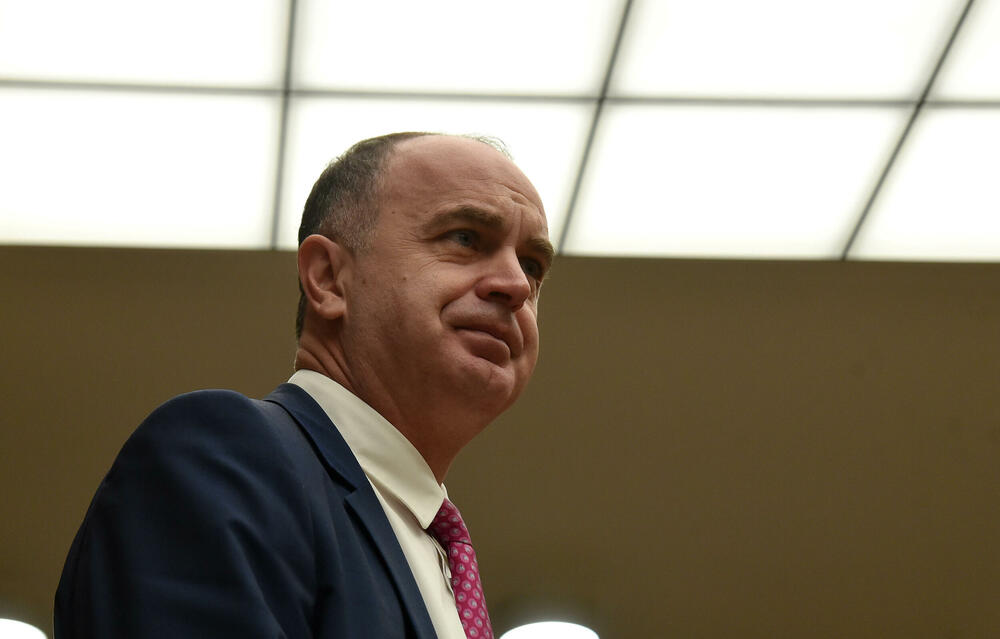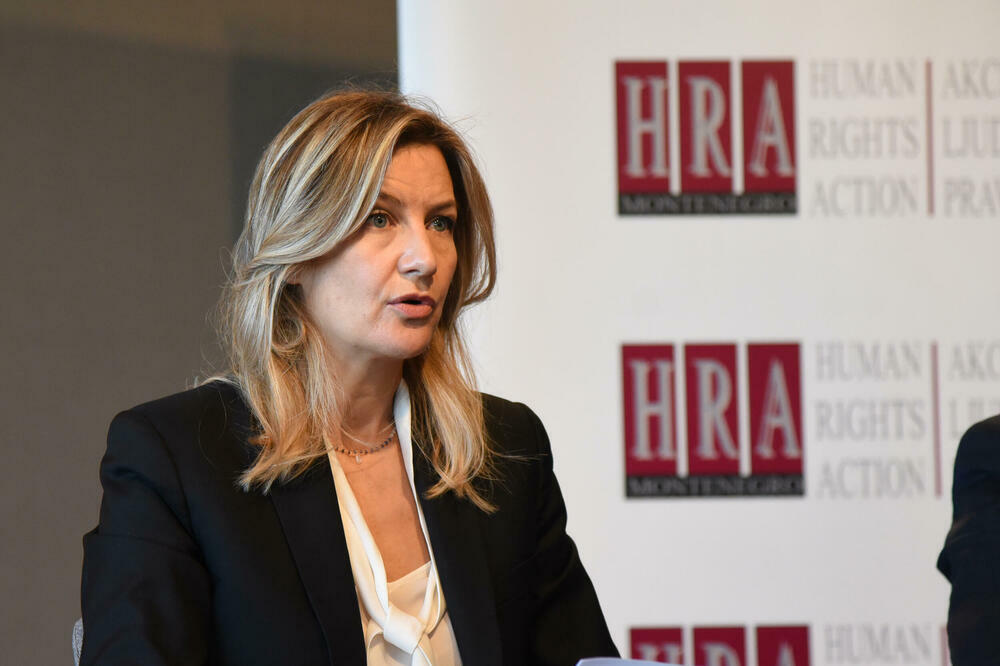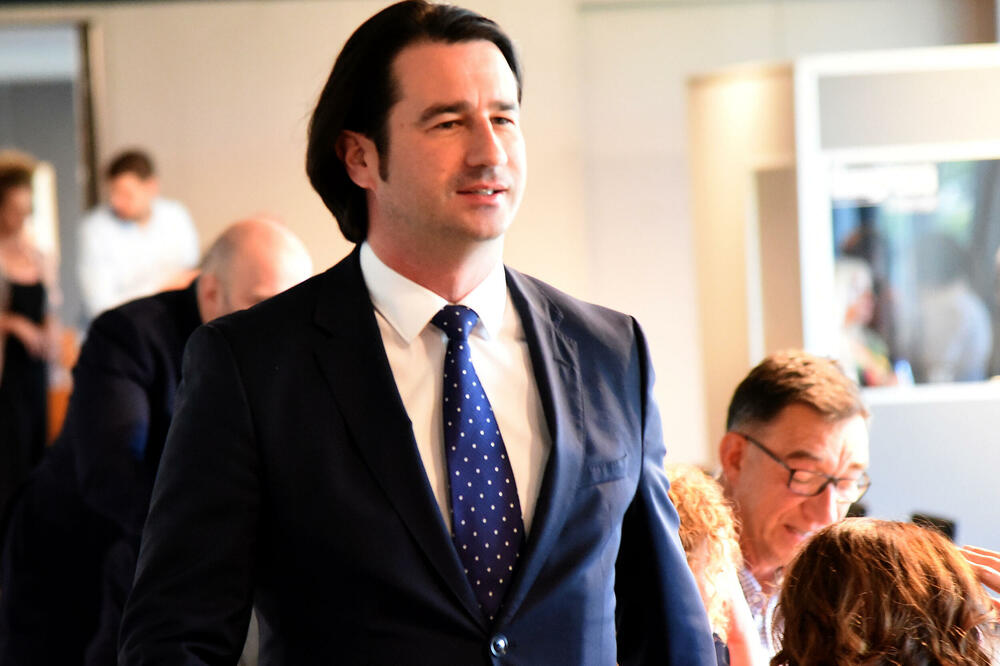The authorities in Pristina have not yet received official notification of the decision of the former Minister of Justice Marko Kovač on refusal of extradition to Kosovo Živka Vuksanović i Momcilo Vukotić, accused of war crimes against the civilian population. That something is wrong in the channels of communication between the two ministries is also indicated by the fact that last Monday, November 1, when these two citizens of Serbia were already at liberty, the Kosovo Ministry of Justice, as told to Vijesti, received a notification that Vukotić and Vuksanović ordered extradition detention.
"On Monday afternoon (November 1 - ed.) we received the latest information from the Ministry of Justice of Montenegro about three different cases of extradition for war crimes with Montenegro, and in none of them was it stated that a decision was made to approve or the refusal of their extradition", the Kosovo Ministry of Justice points out.
In the information received by the Ministry of Justice of Kosovo, colleagues from Podgorica inform them that "the said persons have been detained for the purpose of carrying out extradition proceedings, it is emphasized in the response of the Ministry of Justice of the Republic of Kosovo, noting that they do not yet have a "notification from the Ministry of Justice of Montenegro on the approval or refusal of extradition ".
In the Ministry of Justice of Montenegro, they do not know why this game of "deaf phones" happened with colleagues in Pristina.
"Regarding the extradition procedures of Vukotić Momčila and Živka Vuksanović, immediately after the decision was made rejecting the requests for extradition of Vukotić Momčila and Vuksanović Živka, they were forwarded, in accordance with established practice, to the Ministry of Justice of the Republic of Kosovo, through the regular channels. Any decision of the court or the Ministry of Justice related to the case of extradition is delivered to the central authority of the requesting state without delay, and the time of arrival of the decision at the requesting state depends on international postal traffic, which the Ministry of Justice cannot influence. Of course, decisions on refusal of extradition are submitted to NCB Interpol Podgorica, which informs the partner service in the requesting country about it, while our notification travels through the regular route", the Ministry of Justice states.
In the meantime, the refusal to extradite Vuksanović and Vukotić to Kosovo was also announced Nick Djelosaj, the current Deputy Prime Minister, who assessed Kovač's decision as "scandalous".
"I think the extradition will happen soon. I was looking for information about it, I was interested myself. No one from Kosovo asked me to do that, when it comes to issues concerning Albanians - there is no need for someone to intervene in order to take an interest in it," said Đeljošaj.

The decision to refuse extradition is final, and there is no right of appeal, because the decision to allow or refuse extradition is considered a political decision, the Ministry of Justice of Montenegro told News.
On September 25, the Montenegrin police arrested Momčilo Vukotić (61), a citizen of Serbia, who is suspected of having committed the criminal offense of war crimes against the civilian population in 1999, in the territory of Peć.
The investigating judge of the High Court in Bijelo Polje ordered Vukotić into extradition custody, where he remained until October 26, when Minister Kovač refused to hand him over to the judicial authorities of Kosovo.
A day later, on October 27, the High Court from Bijelo Polje released from custody the Serbian citizen Živko Vuksanović (62), whose extradition was also requested by Kosovo, in order to conduct court proceedings for the criminal offense of war crimes against the civilian population.
Vuksanović has been in extradition custody since October 1, according to the decision of the Bjelopolje court.
In case of Ilira Berisha, a third party claimed by Kosovo, as stated in the Ministry of Justice, the procedure for the request for extradition is ongoing.
Blakaj: Kovac's decision without grounds
"There is not a single report, either by domestic or international organizations, which states that there are cases of inhumane treatment, punishment or torture in detention centers or prisons in Kosovo. Therefore, I believe that the decision of the former Minister of Justice of Montenegro, Mr. Marko Kovač, that he does not extradite the suspects Živko Vuksanović and Momčilo Vukotić has no grounds whatsoever. However, we do not have insight into the reasoning of the former minister, and we do not know if this is the only reason given for such a decision. By the way, there are other cases where there were extraditions from Montenegro to Kosovo, and there were no cases where those persons were subjected to torture, he says. Bekim Blakaj, director of the Fund for Humanitarian Law of Kosovo.
Gorjanc Prelevic: Minister Kovač abused his position
Judging by official press releases, former Justice Minister Marko Kovač refused to extradite Serbian citizens Momcilo Vukotić and Živko Vuksanović to Kosovo, due to "suspicion of their political persecution in Kosovo", says the executive director of the NGO Action for Human Rights Tea Gorjanc Prelevic.
She points out that according to the Law on Providing International Legal Assistance in Criminal Matters, the minister has the right to refuse extradition when it can be "justifiably assumed that the extradited person would be exposed to persecution or punishment in the country to which he is extradited because of his race, religion, citizenship, belonging to a certain social group or because of his political beliefs or his position would be made difficult for any of these reasons."
"Kovač tried to justify this suspicion of political persecution only in the case of Vukotić with the "lack of evidence for the commission of a criminal offense", which is an assessment for which he was not competent, because the High Court is the only one authorized to assess the existence of evidence in such cases and that in the phase that precedes the minister's decision", emphasized Gorjanc Prelevic.

The executive director of Action for Human Rights notes that the High Court in Bijelo Polje previously assessed that all the conditions for the extradition of Vukotić had been met, which means that it assessed that there was sufficient evidence for reasonable suspicion that he had committed the war crime he was charged with.
"By deciding to refuse the extradition, Minister Kovač stepped out of his jurisdiction and opposed the court's decision, which represents an abuse of his position," concluded Tea Gorjanc Prelevic.
She emphasizes that similarly to Kovač, the ministers of justice of the Republic of Serbia - Nikola Selaković, Nela Kuburović and Maja Popović - who never decided to extradite Zoran Vuković to Montenegro (convicted for the murder of the Klapuh family back in 1995), even though the Higher the court in Belgrade determined in a timely manner that all conditions for his extradition had been met. Therefore, adds Gorjanc Prelevic, unlike Kovač, the Serbian ministers did not refuse extradition, but simply did not decide on it, which is also illegal, and thus enabled Vuković to be released from extradition custody and to this day not be extradited to Montenegro.
It is not known, according to Gorjanc Prelević, that Minister Kovač ever insisted on the extradition of Vuković to Montenegro, even though he was aware of the case. Action for Human Rights addressed the Ministry of Justice of Montenegro and Serbia several times on this occasion, and we issued public warnings that were broadcast by the media.
"The European Commission must notice these and other problems in regional cooperation with the aim of punishing war crimes and use its influence to help achieve justice," said Tea Gorjanc Prelevic.
Bonus video:





